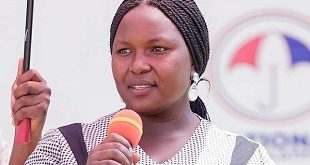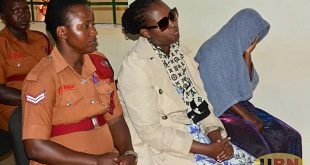
By Joan Akello
As the era of the eight Millennium Development Goals (MDGs) comes to a close, a coalition of over 50 civil society groups wants African governments, Uganda inclusive and global actors to ensure that children are given priority.
The organizations include Child Fund, World Vision, Save the Children, Parenting Uganda and many more.
Presenting a document titled “Child actors position on children in the post 2015 development agenda for Uganda”, Stella Ayo- Odong, the executive Director of Uganda Child rights NGO Network (UCRNN)an umbrella of a number of related organisations, said it is worrying that the proposed agenda, with 17 goals currently, are silent on children yet they form the bulk of Uganda’s population.
Timothy Opobo, Protection manager at Child Fund agrees. “There is no specific reference to children but unless it is explicit and clear, children will be forgotten.”
Odong adds that despite having about 19 million children out of a population of 36 million, government’s budget allocations for their protection and development is negligible drawn from the budget of the line ministry- Gender Labour and Social Development.
She decries the rising numbers of children trafficked in and out of the country unnoticed making Uganda a supply and demand hub. It is estimated that 680 children leave Uganda every year. Therefore, the amount of money allocated for the protection of children from abuse and violence does not commensurate the amount of work to be done.
Now, the activists want this, among other issues addressed, citing 12 recommendations to the government and other stakeholders including the United Nations.
They recommend progressive realization of children’s rights without any discrimination; eliminating all forms of violence and abuse; inclusive social protection, reducing the persistent yet preventable infant and child deaths; equipping adolescents with adequate knowledge and skills on reproductive heath risks and self protection .
Also, achieving universal access to quality early childhood development programs and universal birth registration for all children; ensuring children have decent living conditions; generating and allocating to the maximum extent possible, domestic resources for investing in children particularly in health, education, early childhood development and social protection; ensuring that the best interest of the child is the primary consideration in any action taken and ensuring the implementation of the global and regional commitment of the rights of the child.
They want the government to include these recommendations at the global level while pushing for Uganda’s interests in the post 2015 development discussions.
However, the process of consultation started in 2012 and currently countries are expected to be localizing the proposed 17 goals.
“Negotiations will start in October under Sam Kutesa’s leadership but we are urging him to consider children’s issues,” Odong said, “We want to meet Kutesa through you (the media).”
on June 11, Kutesa , Uganda ‘s foreign affairs minister was selected as president of the 68th session of the United Nations General Assembly for one year starting next month. Kutesa has chosen the theme “Delivering on and Implementing a Transformative Post-2015 Development Agenda” and closely working with UN, he pledges to address among others different global challenges confronting humanity such as poverty and hunger; climate change and rising sea-levels; inadequate and expensive energy; armed conflicts; and emerging threats to peace and security especially terrorism, piracy and human trafficking.
But Opobo argues that “Climate change, gender questions are important but we are saying that the most important issue for the sustainability of Uganda and Africa is children.”
Opobo and the child activists are therefore urging Kutesa to make children key on his agenda as chair because they will be the ones to handle the same global challenges in future.
 The Independent Uganda: You get the Truth we Pay the Price
The Independent Uganda: You get the Truth we Pay the Price



